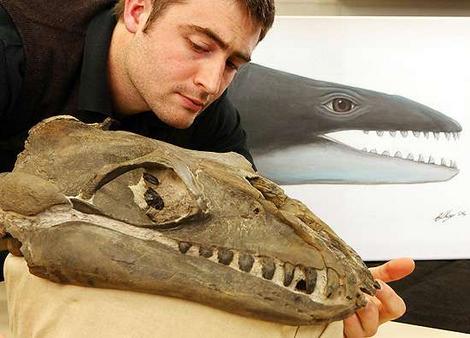
We all know that there were predators on land, some of which were a major threat to their own kind. We knew there were some in the sea as well, after all we have sharks and crocodiles today. Did you ever imagine though that our whales may have evolved from predator so strong, it has now been considered the T-Rex of the Sea?
The find was made in Australia. 25 million year old fossils of an ancient relative of the blue whale, the largest creature to inhabit the earth. Unlike the blue whales however, this ancestor had teeth, very sharp ones. The teeth measure about 3 cms (1.2 inches) in length.
Research has shown these scientists that the fossil is an early type of baleen whale. This type includes the humpback whales, minke whales and the blue whales. The term baleen refers to the comb like plates in their mouth that allows them to filter their food. The only difference is, this ancestor doesn’t even have a baleen.
Erich Fitzgerald of Monash University in Australia says that this whale was actually rather small, measuring only 3.5 meters (11 ft 6 in) in length. He speculates that their food of choice were probably sharks, large fish, or other whales.The fossil was found south-eastern Australia near a town called Jan Juc, earning the fossil the name of Janjucetus (formally known as Janjucetus Hunden). Discovered in 1990 by a teenage surfer, it sat unstudied until Fitzgerald, a graduate researcher saw it on the desk of PhD student.



